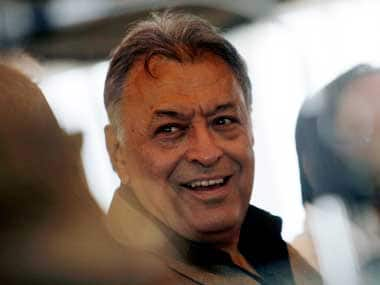Earlier this week, separatist leader Syed Ali Geelani called for a complete shutdown in the Kashmir Valley on 7 September to protest the scheduled Zubin Mehta concert in the state capital. In a statement, Geelani said imams (clerics) of various mosques should lead the post-prayer protests September 6 against the holding of the concert in Kashmir. “On September 7, people should close all businesses and stay indoors as a mark of protest against the holding of the musical programme in Srinagar,” he said. Geelani and other separatist leaders have already issued statements against the concert, saying they are not against the cultural event as such, but holding of an international event like the Zubin Mehta concert tends to consolidate Indian rule in Jammu and Kashmir. Despite the opposition, the event is all set to go ahead with high security presence in the entire valley. [caption id=“attachment_1091027” align=“alignleft” width=“380”]  Will Mehta’s concert achieve much? Reuters[/caption] “Let the music speak for itself,” Mehta told Mumbai Mirror. “It will happen, and will be broadcast across 24 European countries. You’ll see it on Doordarshan." But it won’t be just those outside Kashmir who will have to watch it on Doordarshan. Most Kashmiris will also be forced to watch it on television as the city will be converted into a fortress for the event. To keep visitors safe, the police in Kashmir have sealed all roads leading to the venue and the hotels where members of the Bavarian State Orchestra and the diplomats invited for the concert will be staying, reported Sameer Yasir for _Firstpost_ . In an editorial in Tehelka, Shougat Dasgupta has questioned who this concert is “speaking to”? Mehta and the German embassy have repeatedly extolled the virtue of music - it brings people together. But how much can music ‘bring people together’, when the concert is characterised by three-tier security and a privileged guest lists that leaves out the ‘people’ it hopes to connect? Shougat Dasgupta writes for Tehelka: How can connection be achieved when a concert is staged not for 1,500 members of the Kashmiri public but for grandees with invitations?…How can connection be achieved when it is impossible to articulate the reason for staging a concert without resorting to clichés and airy commonplaces? Admittedly, the concert does seem more exclusive than inclusive, perhaps because there is no other choice given the threats being issued by the Opposition. In a conflict zone, keeping the concert open to the general public is potentially a recipe for disaster. For Dasgupta, the concert to watch for is not Mehta’s but the parallel concert that is being organised by the Jammu & Kashmir Coalition of Civil Societies which shows up the glamorous event as being an “irrelevant folly”. The concert organisers had two options: - Cancel the concert and in effect accept the allegation that they are, in fact, trying to legitimise the Indian “rule” in the state. - Continue, but undertake the contingencies which are necessary to ensure the safety of the participants and audience. But the question arises - when the choices boil down to a ’lesser of two evils’ situation, why was it undertaken at all? Without being unnecessarily cynical, it can assumed the concert was planned with purely idealistic views. Mehta has performed in conflict affected areas in the past, trying to bring people together through the power of music. However, while the sentiment is admirable, whether anything can be achieved through it is questionable given the charged topic it has become for local residents. The concert as a result becomes nothing more than an exercise in rhetoric - the select invitees come, listen to the music, and pat themselves on the back as they sit there, moved by the music bringing them all together. The Kashmiri people, unfortunately, will have to brought together elsewhere.
How much can music ‘bring people together’, when the concert is characterised by three-tier security and a privileged guest lists that leaves out the ‘people’ it hopes to connect?
Advertisement
End of Article


)

)
)
)
)
)
)
)
)



